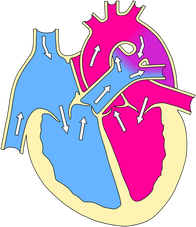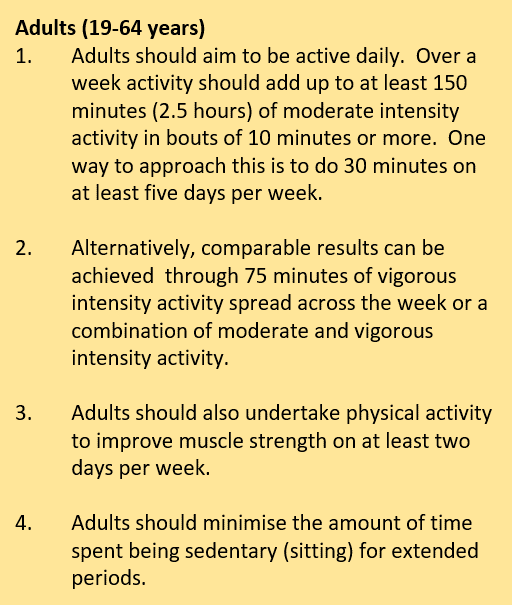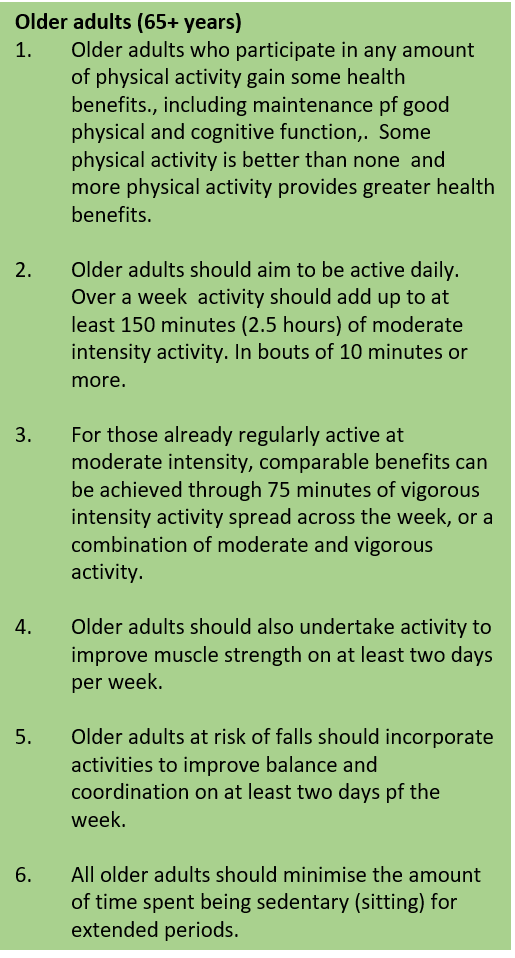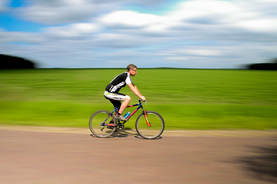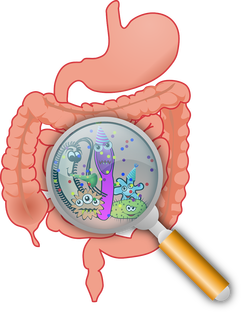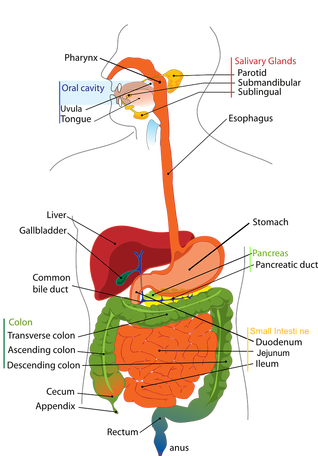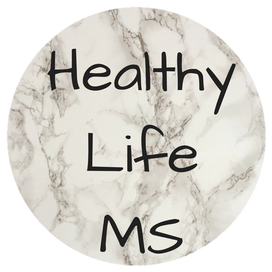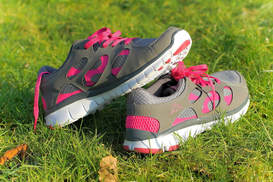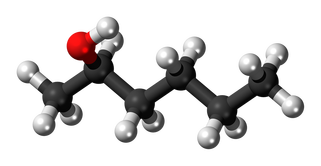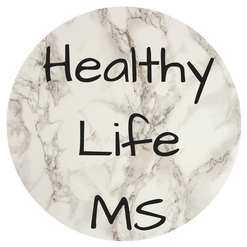What do we mean by cardiovascular fitness?
Cardiovascular (CV) fitness is the ability of our heart, lungs and muscles to take in, transport and utilise oxygen during exercise or any daily activities which make you breathe a little harder and pump your blood a little faster (you may have heard it referred to as cardio-respiratory fitness, stamina and aerobic fitness too).
CV activities do not refer exclusively to traditional, structured 'exercise'; any activity where your heart rate is raised for a prolonged period and you start to feel out of breath counts too. My friends and I giggled during the personal training course when 'gardening' was used as an example of an activity which raises heart-rate and gives you a good workout; I live in the centre of a town where my gardening is limited to a couple of hanging baskets and a stone courtyard, but on mentioning this to my parents who live in the countryside they agreed wholeheartedly that it definitely provides them with a good form of exercise!
CV activities increase the heart rate and breathing rate with the aim of increasing blood flow and delivering more oxygen to the body to produce energy. When the pulse quickens and breathing gets deeper the cardiovascular system is working.
Activities that will improve the efficiency of the heart, lungs and circulatory system- thereby improving CV fitness are those which use the large muscles within the body in a continuous and rhythmic way and include activities such as walking, running, swimming, cycling, rowing, dancing and aerobics classes.
CV activities do not refer exclusively to traditional, structured 'exercise'; any activity where your heart rate is raised for a prolonged period and you start to feel out of breath counts too. My friends and I giggled during the personal training course when 'gardening' was used as an example of an activity which raises heart-rate and gives you a good workout; I live in the centre of a town where my gardening is limited to a couple of hanging baskets and a stone courtyard, but on mentioning this to my parents who live in the countryside they agreed wholeheartedly that it definitely provides them with a good form of exercise!
CV activities increase the heart rate and breathing rate with the aim of increasing blood flow and delivering more oxygen to the body to produce energy. When the pulse quickens and breathing gets deeper the cardiovascular system is working.
Activities that will improve the efficiency of the heart, lungs and circulatory system- thereby improving CV fitness are those which use the large muscles within the body in a continuous and rhythmic way and include activities such as walking, running, swimming, cycling, rowing, dancing and aerobics classes.
Long-term benefits of cardiovascular exercise (for the general population and us)
CV activities have a number of benefits to the body:
- the heart becomes stronger
- more blood is circulated in one heart beat
- more capillary blood vessels develop within the muscles allowing more blood to be transported (a side note relevant to us with MS here: capillaries are the blood vessels closest to the skin's surface which dilate when we get hot and are the body's primary cooling function: the more capillaries we have, the more quickly heat can be lost and we can cool down)
- metabolic waste products can be removed more efficiently (carbon dioxide and lactic acid - produced when we exercise more intensely)
- more mitochondria develop in the muscles and grow larger; this increases the body's ability to use oxygen to produce energy: the more mitochondria, the more energy can be produced)
- it assists in weight-management
- risk of cardiovascular diseases (CVD) is reduced eg coronary heart disease and stroke
How can cardiovascular activity help to manage some of my MS symptoms?
Alongside the general population health benefits of CV activity (available to all regardless of MS status), research has shown specific benefits to people with MS (PwMS) in terms of symptom management and improved ability to complete daily activities (known as ADLs: Activities for Daily Living).
Regular CV activity has been shown to improve:
Regular CV activity has been shown to improve:
- Balance
- Coordination
- Mobility (specifically related to walking)
- Fatigue
- Low mood
- Anxiety
- Depression
How much cardiovascular activity should I do to reap the benefits?
The guidelines below were published for the general population (ie those without MS) by the UK Department for Health in 2011 but it has become accepted that as far as is reasonable these apply to PwMS too (full reference below). It is understood that the nature of the disease and the varied symptom patterns may make any level of activity challenging, however the benefits of CV activities to health outside of our MS are huge (as detailed earlier in this blog).
As I mentioned in the previous resistance-training blog (and labour a little on the site!) the popular adage 'no pain, no gain' simply doesn't apply when exercising with MS; you should only do what is realistic for you and only you know that: not a personal trainer, training buddy or the distance of a run or bike ride you signed up to... just YOU.
As I mentioned in the previous resistance-training blog (and labour a little on the site!) the popular adage 'no pain, no gain' simply doesn't apply when exercising with MS; you should only do what is realistic for you and only you know that: not a personal trainer, training buddy or the distance of a run or bike ride you signed up to... just YOU.
Ways to incorporate CV activity into your day
We are all so busy; life is so busy so it can be difficult to find time to exercise or spend time on activities. It is often easiest to 'find time' if you can incorporate moving a bit more into your daily life (as much as you are able) so it doesn't feel like a 'special effort' or that it is taking time away from something else. I'm a big fan of choosing activities that family members can join in with too: two birds with one stone as it were - quality time and exercising: win-win.
Some ideas from me:
Some ideas from me:
- finding interesting routes for walking the dog
- family cycle rides
- now that it's feeling more like Autumn in the UK it's time to dig out our wellies and walk in the woods
- active commuting: if you live in a big city like London with a comprehensive rail system take time to really look at the map - so often it is quicker to walk between stops rather than changing lines for one or two stops
- can you cycle to work?
- team sports
- I enjoy the gym but I know it's not everyone's cup of tea
- a PT friend of mine runs bootcamp sessions in a local park timed to fit in with office lunchtimes - do you have this sort of thing near you?
A few thoughts from the MS Trust on exercising whilst in a wheelchair
If you are a gym-goer there are lots of adaptations available for using machines like the rowing machine or arm-cycling machines - both are great CV activities. At home - a suggestion from the MS Trust's neuro-physiotherapist Liz Betts is arm-jogging whilst watching the TV or working on balance whilst waiting for the kettle to boil. Small consistent actions can really make a difference to your fitness.
A few extra bits on exercise and MS
I'm conscious that when most people (me included) talk about 'exercise' in general-chat we often mean CV activities like running or cycling. Whilst I do use weights frequently - more than the twice-per-week recommended - I don't automatically jump to think of deadlifts if exercise is mentioned. On that basis there are a few extra points about exercise there are pages dedicated to them on the site but I think they're relevant here.
Heat and CV exercise
You may remember from the recent blog on heat and MS symptoms (Uhthoff's Phenomenon: available here if you missed it) that CV exercise is more likely to raise body temperature than resistance training because CV activity increases blood flow and therefore generates heat (that's the point of CV activity!). Nonetheless heat can be a problem; do check out the previous blog mentioned above to see tips for managing this if it is a problem for you.
You may remember from the recent blog on heat and MS symptoms (Uhthoff's Phenomenon: available here if you missed it) that CV exercise is more likely to raise body temperature than resistance training because CV activity increases blood flow and therefore generates heat (that's the point of CV activity!). Nonetheless heat can be a problem; do check out the previous blog mentioned above to see tips for managing this if it is a problem for you.
Can I exercise during a relapse?
Advice from the MS Society shows that exercise during a relapse does not make MS worse in the long term and that exercise does not trigger relapse.
Advice is not to exercise until symptoms have levelled off and any steroids - prescribed to help you through the symptoms - have finished. A physiotherapist can help you get back into an exercise routine once the relapse is finished and can provide advice on strengthening activities for any affected body parts. A physiotherapist is more suitable than a PT to 'prescribe' movements for rehabilitation.
If in doubt, please consult an expert...
Please don't be afraid to ask for help if you're trying to work out how to start exercising; part of the PT course discusses MS so a qualified personal trainer can help put together a plan for you - in or out of the gym. It is important that you explain about your MS and don't be embarrassed about admitting there are things you find difficult, the emphasis here is on 'personal' training so they can put together a bespoke plan which works for you and keeps you safe: safety whilst exercising is paramount. For specific mobility-related queries it may be best to consult a physiotherapist too.
On that note, be careful about following YouTube videos by fitness bloggers; they are qualified in their own areas but they don't know you personally: one size does not fit all in terms of exercising with a condition like MS. From personal experience pre-diagnosis and pre- PT qualification it can be costly in terms of physio appointments to repair any damage caused by following videos with no-one to correct possible poor form. This is part of why I keep focussing on safety with anything to do with exercise.
If you haven't exercised for some time be sure to get agreement from your GP before you start to make sure there are no other factors you need to consider first.
On that note, be careful about following YouTube videos by fitness bloggers; they are qualified in their own areas but they don't know you personally: one size does not fit all in terms of exercising with a condition like MS. From personal experience pre-diagnosis and pre- PT qualification it can be costly in terms of physio appointments to repair any damage caused by following videos with no-one to correct possible poor form. This is part of why I keep focussing on safety with anything to do with exercise.
If you haven't exercised for some time be sure to get agreement from your GP before you start to make sure there are no other factors you need to consider first.
References:
Active IQ (2016) Fitness Instructors Handbook. Active IQ: London
Betts, L (2017) ‘Practical tips staying active’. Open Door (May); London pp.16-17
Coulson, M. (2011) ‘Multiple sclerosis’ in The complete guide to teaching exercise to special populations. Bloomsbury: London pp.133-140
GOV.UK (2011) 'Start active, stay active'. A report on physical activity from the four Home Counties' Chief Medical Officers. Available online at: www.sportengland.org/media/2928/dh_128210.pdf
Langeskov-Christensen, M. et al., (2015) ‘Aerobic capacity in persons with MS: a systematic review and meta-analysis’. Sports Medicine, 45(6):pp. 905-923
Latimer-Cheung, A.E. et al., (2013) ‘Effects of exercise training on fitness, mobility, fatigue, and health-related quality of Life among adults with multiple sclerosis: a systematic review to inform guideline development’. Arch Phys Med and Rehab 94(9): pp.1800-1828
MS Society (2017) Exercise. Available at: https://www.mssociety.org.uk/exercise
MS Trust (2014) A-Z of MS: Exercise. Available at: https://www.mstrust.org.uk/a-z/exercise
Active IQ (2016) Fitness Instructors Handbook. Active IQ: London
Betts, L (2017) ‘Practical tips staying active’. Open Door (May); London pp.16-17
Coulson, M. (2011) ‘Multiple sclerosis’ in The complete guide to teaching exercise to special populations. Bloomsbury: London pp.133-140
GOV.UK (2011) 'Start active, stay active'. A report on physical activity from the four Home Counties' Chief Medical Officers. Available online at: www.sportengland.org/media/2928/dh_128210.pdf
Langeskov-Christensen, M. et al., (2015) ‘Aerobic capacity in persons with MS: a systematic review and meta-analysis’. Sports Medicine, 45(6):pp. 905-923
Latimer-Cheung, A.E. et al., (2013) ‘Effects of exercise training on fitness, mobility, fatigue, and health-related quality of Life among adults with multiple sclerosis: a systematic review to inform guideline development’. Arch Phys Med and Rehab 94(9): pp.1800-1828
MS Society (2017) Exercise. Available at: https://www.mssociety.org.uk/exercise
MS Trust (2014) A-Z of MS: Exercise. Available at: https://www.mstrust.org.uk/a-z/exercise
